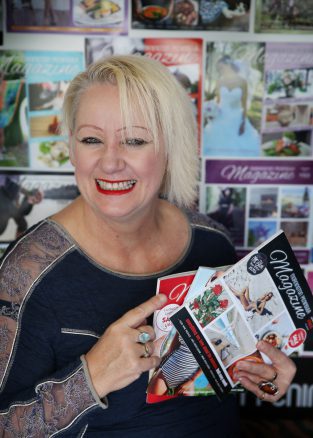It’s 1987 and Lisa Walton is sitting at a boardroom table with eight older men in grey suits. She’s determined, young, passionate about journalism and, to them, very female.
Walton had called this “extraordinary” meeting as head of Melbourne’s Allied Suburban Newspapers, after hearing talk that Rupert Murdoch was looking to buy suburban papers.
He had already bought suburban printing presses and sold them off as “scrap metal”, and she feared he would do the same, metaphorically, to local papers.
Walton wanted to put a moratorium on any sale for six months until they worked out if there would be a takeover bid. “None of those gentlemen would vote on that,” she states, obviously still devastated.
She sighs heavily, and then regains her composure. “And it was a really sad time in the next six months for suburban newspapers as 80 per cent were purchased by News Ltd.”
As it turned out, Murdoch’s News Ltd, now News Corp, didn’t shut the papers – not back then. But in May this year, News Corp announced that more than 100 of those local and regional newspapers it bought in 1987 would close or become digital only.
The move was widely condemned, for leaving many communities without a voice and without a watchdog on local councils, courts and other staples of local media coverage. Paradoxically, though, some believe it may actually regenerate local papers, which had been in long-term decline.
Walton, who runs a magazine these days, the Mornington Peninsula Magazine, is preparing to launch a local paper. Other entrepreneurs are also stepping up.
Staff made redundant in northern NSW are poised to publish the first edition of a new community newspaper, the Northern River Times, and plans for other community newspapers are being hatched in areas where News Corp has exited.
John Georgantzakos, managing director of Spotpress, one of the few remaining printing press companies in Australia, says he has received many inquiries for printing jobs for new papers.
The hard days may be over for local communities and the printing industry, he says, during a tour of his printing factory in Marrickville, in Sydney’s inner west, pointing out large rolls of white paper being prepped to print a local paper.
Walton still has fond memories of the old days in local newspapers. Back in 1982, she was running four papers in Victoria.
“It was rich with community and was the most amazing industry in the ’70s and ’80s.”
Lisa Walton

The papers were run by people with passion, like Walton. They had reporters on the ground looking for stories, and many printed their own papers; there were printing presses all across Australia.
“When I was in suburban newspapers in the ’80s, we stopped freeways getting put through certain areas, we stopped boarding houses being pulled down for development,” Walton says.
“The power of a local paper is huge.”
Once News Ltd had dismantled the presses, local papers were forced to go to their presses to get printed. Eventually they ended up with print debt and News Ltd bought them out.
The News Ltd takeover, followed by the dawn of the digital era, saw advertising change. Ad agencies moved their clients toward digital advertising, and the revenue of local papers dwindled.
“Technology has changed their print dollars to digital dimes, haven’t you ever heard that saying?” asks Georgantzakos.
“The publishers have had to cut expenses and have reduced the size of editorial teams to save on cost,” he adds.
“As a result, there have not been enough editorial staff on the ground to write about community news.”
At the same time, the corporate publishers created “cookie cutter” news, putting the same stories in multiple papers over large regions, just with different ads. As a result, many communities suffered.
Peta Pinson, the mayor of Port Macquarie Hastings Council, in northern NSW, is worried about the impact on her community of losing its 133-year-old local paper.
“In this time of limited social connection, a local newspaper is more important than ever.”
Peta Pinson
Walton, though, sees an opportunity for local publishers and journalists to launch new community newspapers that are focused on real community news, and supported by local business advertisers.
Her printers told her recently that they had received 54 inquiries for new newspapers, from Queensland to Victoria.
“I’ve been swearing at the TV a lot lately because I see these stories on the demise of community newspapers, but you know what?” she says.
“It’s not the demise of community newspapers, this is a celebration that finally Murdoch has got out of something that all he did was destroy.
“Now that Murdoch is out of the industry, who knows what I might do?”.


